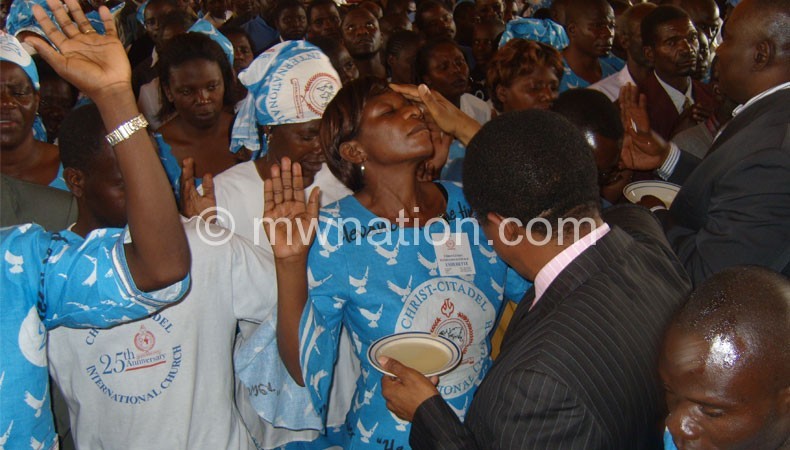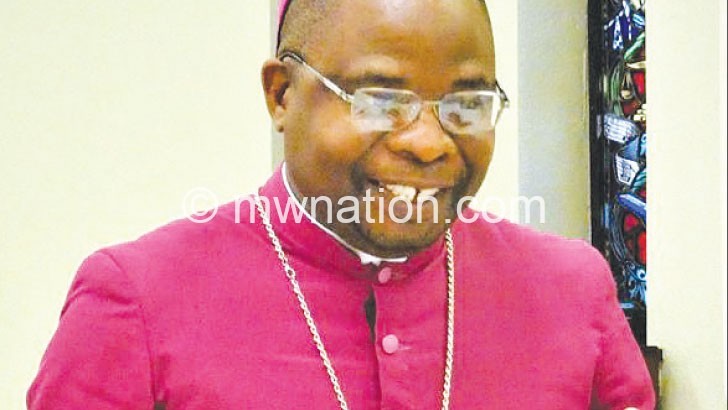When faith leaders are not accountable

John Lemson, who lives in Blantyre, is not happy about the way his church uses its resources.
Lemson suspects that the church’s leaders are not transparent and accountable on the issue.
But for fear of being labelled Satanic, he has avoided raising a finger.
“There is a tendency in our church to label anyone who crosses paths with the pastor or any other leader as Satanic,” he said.
Thus, Lemson suppresses the urge to demand a financial report from the church council.
He is not the only one.
Teresa Banda, who worships at a Pentecostal ministry at Luchenza in Thyolo, is also suffering from the same problem.
Banda, a signatory to the ministry’s account, confided in Nation on Sunday that the founder of the ministry is operating a string of businesses that include maize mills and a private school using the ministry’s resources as capital.
“All these businesses are registered in his name, his wife and children. Yet, no one would dare raise a finger for fear of being labelled Satanic,” she said.
Although faith groups are supposed to be communities of believers with a shared commitment to equality, the tendency among faith leaders is to hold themselves as holy and, therefore, beyond reproach.
Andrew Kachali, a resident of Mchengautuba in Mzuzu, said this prevents believers from disciplining their leaders.
“Most pastors know that what they are doing is wrong, but they reject transparency and accountability because they don’t want to be labelled deficient in their spiritual lives,” said Kachali.
He said concerns over lack of transparency and accountability are common in many faith groups, especially among Pentecostal churches and ministries.
Kachali said the lack of transparency and accountability in churches could be an indication that there are some pastors, apostles and prophets who joined churches to enrich themselves.
Principal of Mhlafuta Mission of the Last Church of God in Mzimba Pastor Mtumbuka Chisambi agreed that some pastors use churches to amass wealth.
But Chisambi said the issue of transparency and accountability does not arise in his church because they do not take tithes or Sunday collections from their members.
“The Bible forbids men of God from collecting tithes or offerings of any sort from believers. This means that whoever is collecting money in the name of spreading the gospel is simply do so to satisfy his personal interests,” said the principal who quoted 2 Corinthians 2:17 as their basis for not collecting tithes and other offerings.
The verse in question reads: “We are; for we are not peddlers of the word of God as many men are, but as out of sincerity, yes, as sent from God, under God’s view, in company with Christ, we are speaking.”
Pastor Nyson Kathumba of the Apostolic Faith Mission said financial accountability is becoming a touchy issue in many institutions, including churches.
Kathumba said this is justified because people who sacrifice their resources to give to the church should show interest in how the resources are managed.
“In some churches, virtually every financial decision is subject to a congregational vote. In other churches, no one other than the pastor and/or a few leaders know how the finances of the church are being managed.
“In such a situation, transparency and accountability are indeed at threat because pastors, too, are humans who can be tempted just like anyone else,” he said.
Kathumba said his church encourages members to demand financial reports where they do not understand issues.





